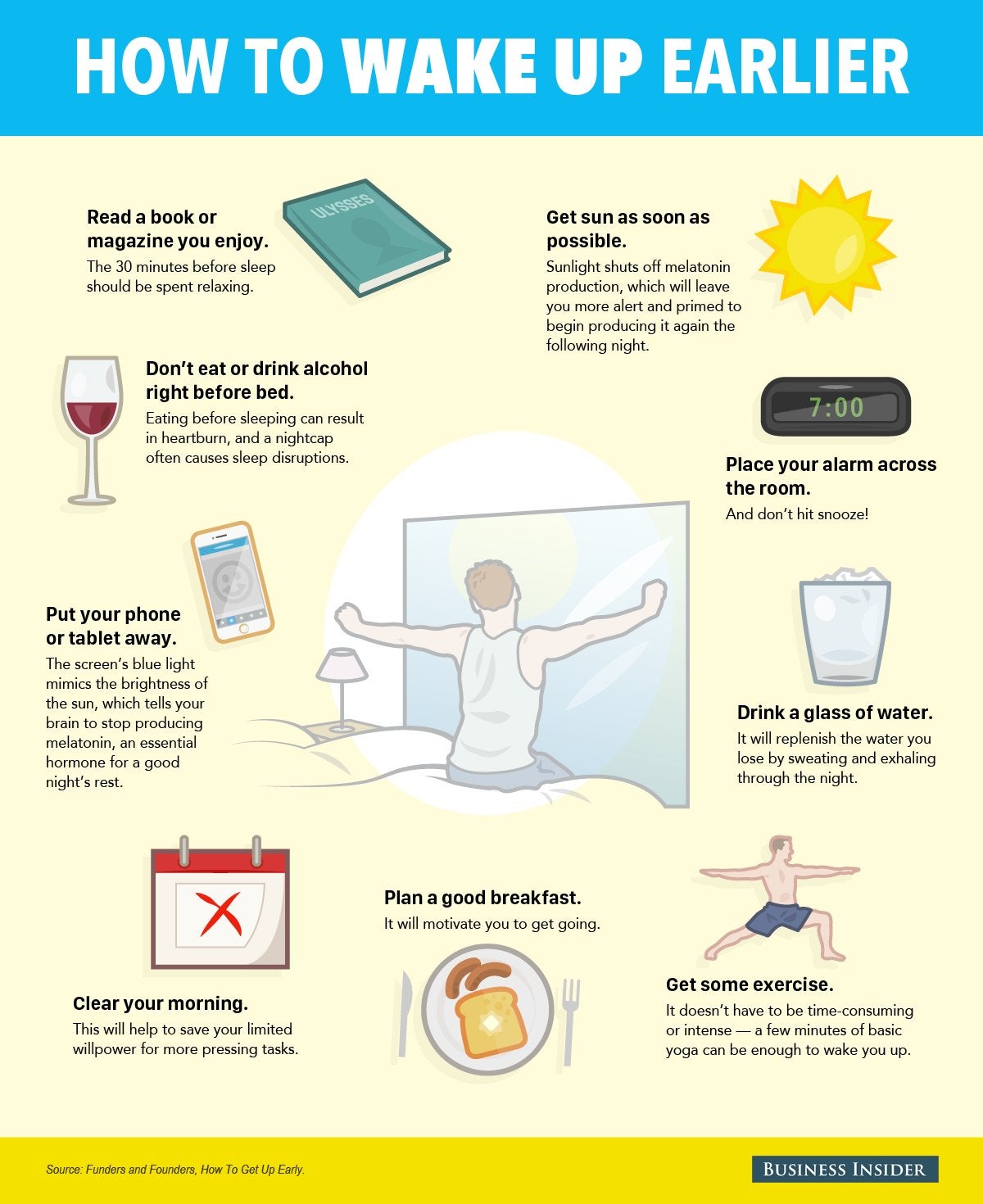

Training your body to wake up at the same time every morning might take some work, but it’s worth the effort. Wu suggests-simply resting can restore and reenergize your brain without throwing your circadian rhythm off, she says.

If you can’t fit in a nap, try to relax or shut your eyes for 10 minutes (even if it’s at your desk on your lunch break), Dr. is ideal so it doesn’t mess with your nighttime sleep). If you still feel groggy, pencil in a 20- to 30-minute midday nap ( before 3 p.m. so you don’t throw your body clock off too much. If you usually wake up at 8 a.m., but had a late night and want to sleep in, make sure you’re up by 9 a.m. “Let yourself wiggle by an hour,” she says. You don’t want to be sleep-deprived, but you want to try to maintain some consistency, says Dr. Sometimes life gets in the way of your best-laid plans (heh), and you may wonder if it’s more important to get enough sleep or wake up on schedule. If your wake-up times are all over the place, it’ll likely be harder to get a good night’s sleep, she says, and you may have issues concentrating the next day. It’s kind of like constantly traveling to different time zones and getting jet-lagged, Dr. If you wake up at different times each day-or even if you keep a pretty consistent sleep schedule during the week but sleep in every weekend-your brain will get confused and start to release melatonin at weird hours. Inconsistent wake-up times can really mess with your body clock. Over time, your body will automatically know when to release melatonin-a hormone that induces sleepiness-at night and when to stop producing it in the morning, she explains, which can make it easier to both fall asleep at night and wake up ready to go in the morning. “Consistently having that light cue at the same time in the morning will go a really long way in anchoring your 24-hour clock,” Dr. By opening your eyes like clockwork every morning, you’re essentially programming your body for better sleep.


 0 kommentar(er)
0 kommentar(er)
